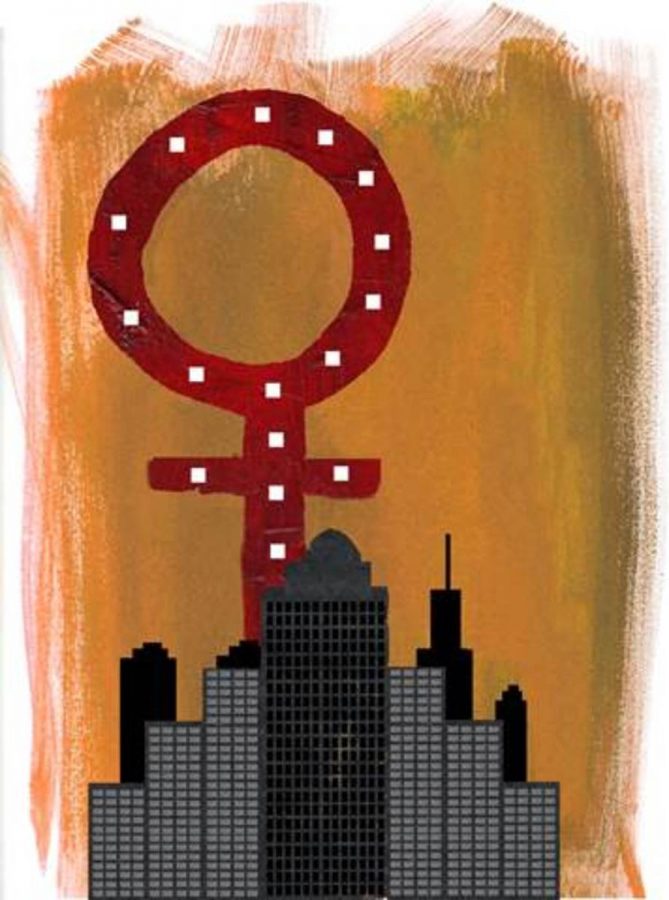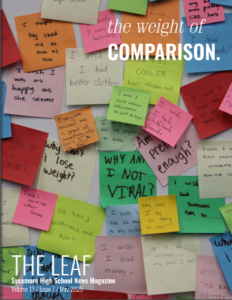Misconceptions of feminism: we can educate ourselves better
Contrary to belief, feminism has been around for a very long time. We can see feminist icons in ancient female rulers and scholars, who were able to grab opportunities and power despite gender prejudices. Icons such as Amy Poehler, Tina Fey, and President Barack Obama have all joined the feminist movement
April 9, 2015
In our society today, the word feminism has gained a negative connotation. Some people seem to believe that feminists think they are “better than men” or that they “hate men.” Just mentioning the word online can generate a slew of angry responses.
Unfortunately, now feminism and misandry seem to become interchangeable.
Misogyny= hatred of women
Misandry= hatred of men
Feminism= equality of the sexes
Therefore, misandry DOES NOT equal feminism.
The dictionary definition of feminism is “The theory of the political, economic, and social equality of the sexes.” In other words, equal rights for both men and women.
The world needs feminism. Girls have been shot for wanting a proper education. Marital rape in the United States became a crime in 1993, only 23 years ago. Male abuse victims are ridiculed for their suffering.
These issues just touch the tip of the iceberg. So why are not more people joining the feminist movement?
According to a poll on Huffington Post, 20 percent of Americans identify as feminists. But on a separate poll, 82 percent actually believe that men and women should be socially, economically, and politically equal.
The lack of support for feminism is largely due to the negative connotation associated with the word.
There seems to be a widespread plague of internalized misogyny, revealed to us through “women against feminism” blogs and Facebook pages, featuring girls holding up signs saying “I don’t need feminism because I am about equality!” or “I don’t need feminism because I support equality, not sexism.”
Irony at its finest.
Not to mention that these Internet groups gives us a feeling of déjà vu. A blast to the past: the “women against feminism” group is a modern parallel to the “women against suffrage” groups which were around during the 1920s.
So why is feminism taking such a beating? It protects rights, not violates them.
“Feminism has fought no wars. It has killed no opponents. It has set up no concentration camps, starved no enemies, and practiced no cruelties,” said Dale Spender, an Australian feminist campaigner, in her book Man Made Language.
She continues, “Its battles have been for education, for the vote, for better working conditions… for safety on the streets… for childcare, for social welfare… for rape crisis centers, women’s refuges, reforms in the law. If someone says, ‘oh I’m not a feminist,’ I ask, ‘why, what’s your problem?’”
Another common misconception surrounding feminism is its exclusivity to women. Feminism does mainly focus on women’s rights, because for the past couple thousand years, the female gender has been branded the “inferior sex” and denied basic human rights given to their male counterparts.
Even today, in our modern world, there is still a huge wage gap between the genders. Women still do not have control over their own bodies and young girls are married off before the age of 18.
Feminism does protect men as well, including and not limited to transgender men, male abuse victims, and male or female rigid gender roles and stereotypes.
But feminism however does not support the men and women who support the patriarchy. It does not glorify or support powerful women that do horrible things.
What feminism does is promote equality.
British actress Emma Watson delivered a powerful UN speech regarding the fight for gender equality, and the #HeForShe movement.
She acknowledged the gender stereotypes that constrain and damage both men and women.
“Men, I would like to take this opportunity to extend you a formal invitation. Gender equality is your issue too,” Watson said.
“I’ve seen my father’s role as a parent being valued less by society, despite my need of his presence as a child, as much as my mother’s. I’ve seen young men suffering from mental illness, unable to ask for help for fear it would make them less of a man.”
“ I’ve seen men made fragile and insecure by a distorted sense of what constitutes male success. Men don’t have the benefits of equality either.”
The HeForShe movement is about gender equality, both for men and women to fight for, and both men and women to benefit from.
As Watson eloquently put it, “it is not the word that is important. It is the idea and the ambition behind it.
Let’s rescue the word and restore it to its rightful place as one of the most important social justice movements of our time.







